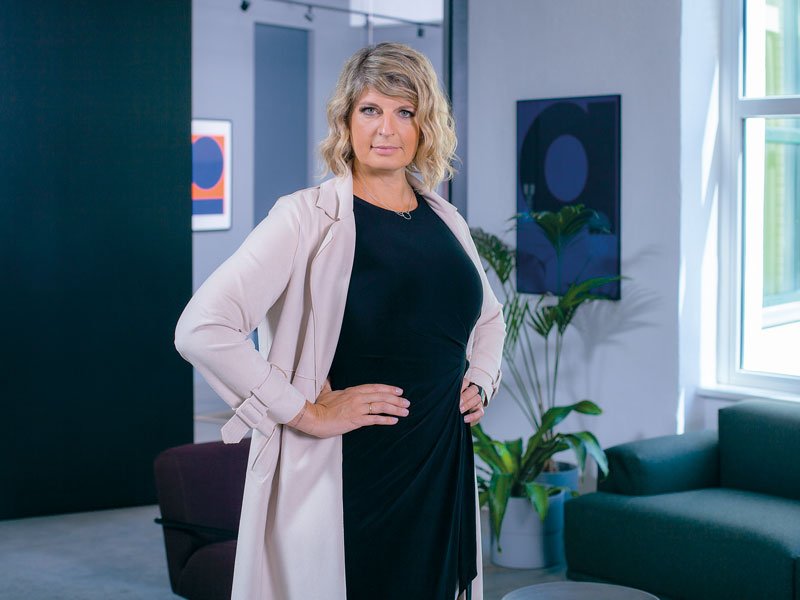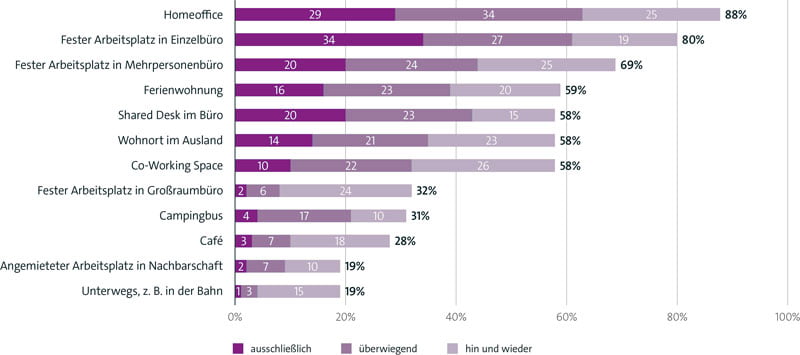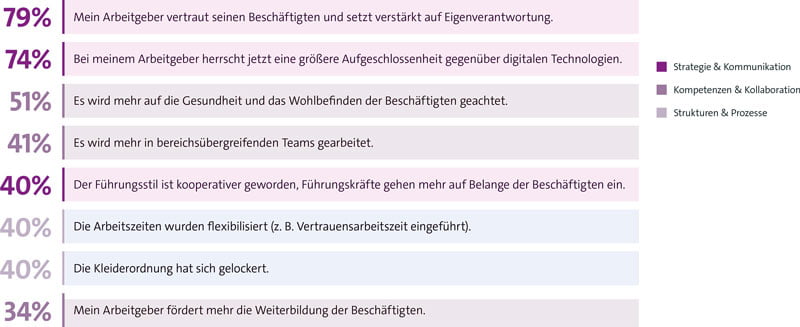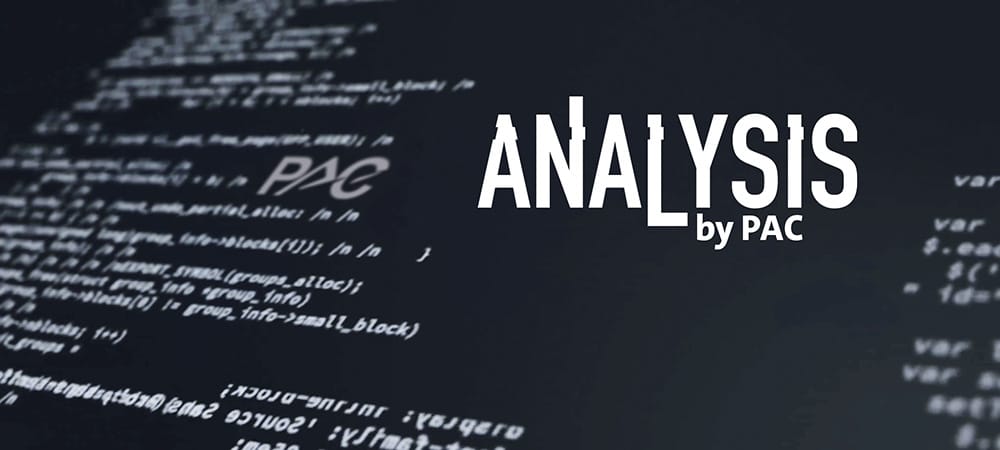New HR Work


Modern HR can not only do more, but must also do more in the spirit of New Work. The organizational and operational structures need an HR booster for their digital transformation.
The pandemic has not only spawned new features like booster vaccination, but in business it has also challenged and changed HR management in new ways. While many HR software vendors are still debating new features and delivery models, Workday has come up with a "HR Booster" already much further. HR cloud provider Workday discusses with its customers the strategic and human added value of HR work for employees and management.
Uta Ernst-Diarra, Managing Director for Germany at Workday, Daniela Porr, also from Workday and responsible for solution marketing, Anna Gajda, Vice President of People and Enablement at LeanIX, and Anna Blendinger, Partner at PwC Germany, discussed the new challenges of people management and HR work. The conversation is excerpted in this E-3 cover story.
A detailed discussion of the issues mentioned here was held on September 14 of this year at 11 a.m. from the E-3 Studio as a livestream on YouTube.
The digital association Bitkom expects the trend toward mobile working to continue. Bitkom President Achim Berg: "The Corona crisis has triggered a development that can no longer be reversed. The majority of professionals and employers have had overwhelmingly positive experiences with home office. Working independent of time and place is something more and more employees are demanding and defining the new normal in the workplace." Employers would have to adjust to this.
In recent years, the view of digitization in the world of work has continued to develop strongly in a positive direction. More than eight out of ten employees see digitization as an opportunity for their professional situation. This is the result of a survey of more than 600 companies with 20 or more employees commissioned by the digital association Bitkom.
perceived the digital transformation as an enabler: In contrast, only one in seven still sees digitization as a threat to their own professional situation, much less than before the pandemic. Two-thirds of employees are currently allowed to work on the move, for example in a home office. Three quarters of them also take advantage of this option. In terms of all employees - including those whose jobs are not suitable for mobile working - that is exactly half: 50 percent of employees in Germany currently work fully or partially on a mobile basis or in a home office.
Uta Ernst-Diarra is Managing Director for Germany at Workday. She sees digital transformation as a clear challenge: "The use of IT can only be as successful as the existing corporate structures are. So this is primarily about digital transformation, which can only be successful with change management in the existing organization."

From past experience, Uta Ernst-Diarra knows that there are many employees who have little attachment to the company or affinity with its culture. "This is of course where IT like from Workday can open new doors"She confirms this on the basis of many successful customer projects. Most people have a mobile device with them, which they use privately as a matter of course. However, integration into HR work with the support of these devices is naturally not a project that runs alongside, explains the Workday manager in an interview with E-3 Magazine. "But it is an important involvement of employees"explains Uta Ernst-Diarra and: "Workday can support and lead here." It's a huge transformation from a traditional and centralized HR department to employee ownership and empowered data maintenance.
Anna Gajda, VP People and Enablement at LeanIX, confirms the upheaval in HR-
Area: "I'm seeing a paradigm shift. We're moving away from a very transactional understanding to a more strategic understanding." Home offices, flexible working hours and new forms of collaboration: The modernization and digitization of the world of work have accelerated further in recent years. Currently, half of all employees in Germany work fully or partially in a home office or on the move. There is strong support for more flexible forms of work. The vast majority of the workforce rallies behind values and attitudes associated with New Work: The broadly shared desire for a job is to be able to freely organize working hours, determine individual performance and learning goals, and generally pursue meaningful activities.

"At LeanIX, it's the experience, both the employee experience but also the customer experience at the same time."Anna Gajda explained and specified in the E-3 discussion round: "Which means that the HR role - at LeanIX it was called People - also has a clear business connection. This means that the people managers are also perceived as strategic partners in the company. It's no longer enough to process HR tasks in a transactional way; the employee needs the experience."
The digital association Bitkom has surveyed that employers are expected to assume social responsibility and promote equality and diversity. "HR is currently a multi-crisis manager when I summarize the challenges I've heard"Daniela Porr, Solution Marketing at Workday, explains in an E-3 interview. Strictly speaking, we in the DACH region are not yet through with digitization, says the Workday manager, but are confronted with new forms of work such as virtual work, hybrid work, and so on. But Daniela Porr sees a solution: "HR can currently be a connector for employees, managers and the company as a whole. But for that to happen, HR needs adaptability, agility and flexibility in IT, and IT also needs to keep up with the necessary pace."

Anna Blendinger, a partner at PwC Germany with a focus on HR and Workday Transformation, confirms: "HR work is particularly exciting and challenging right now because the world is changing, the way we work together is changing, so the job market is changing. Of course, the transactional is still important, as it was in the past, but we have technology to organize that." The digitization and flexibilization of the world of work is also changing the culture in the workplace, according to the Bitkom concept paper on New Work.

Anna Blendinger Partner People and Organisation, PwC Germany
The past few years have triggered a broad rethinking of leadership, collaboration and processes. Eight out of ten dependent employees have the impression that their employer trusts its employees more since the pandemic and is placing greater emphasis on personal responsibility. Three quarters note a greater openness to digital technologies. Half say that more attention is paid to the health and well-being of employees. Four in ten each report a more collaborative management style, more flexible working hours and a more relaxed dress code. One-third see more training opportunities for employees.
Workday manager Daniela Porr: "It's about adequate and agile change in business processes - from new compensation models to innovative recruiting processes. I have to continue digitization and also think long-term when using IT and, of course, remain adaptable with my HR processes." And Anna Blendinger adds: "Modern HR work must be aligned with current changes, and that is not always an easy task because change is always a challenge for people. For example, if a company pursues a new strategy, this new path should be supported by all employees. HR must of course be an enabler here!"
Bitkom says that new-work concepts need to become even more widespread in companies, institutions and public authorities in order to make everyday working life more innovative and digital, and Daniela Porr from Workday adds another point to the discussion: "The focus on skills and experience seems particularly important to me in this ongoing transformation. Diversity is particularly important in the current tense labor market situation, because it is important to create a working culture that suits everyone. The challenge here is how do we listen to our employees so that we can achieve a positive experience."

Anna Blendinger thus postulates that HR should ideally be a function that helps shape the company. Blendinger: "In the past, of course, that was very rarely the case, that HR had this self-image and was also put in a position to do so. I want to be asked by HR whether I can optimally set up my team and achieve the strategic goals. HR should be aligned with my business goals and support me in achieving them."

Shaping HR with IT
Workday's goal is to advance and shape the digitization of the world of work. Uta Ernst-Diarra: "One challenge in the recent past has been the lack of retention because many employees have been de facto relegated to the home office. There are study results that say that due to the well-known development, many employees feel less connected to their company as a result. The traditional interpersonal behavior in the office has thus definitely come up short. But this has also meant that part of the corporate culture has been lost. Ultimately, many customers then asked us: How can I better retain my employees at the company through innovative HR work?"
The lack of personal interaction with other employees is, in turn, the most frequently cited disadvantage of home office, according to Bitkom's findings: Four out of ten complain of less contact with colleagues. For one-fifth, having less contact with superiors is also a problem. "How can I change and also optimize the organization of HR to such an extent that employees say again: I stand by my company. I am loyal. I am motivated"asks Uta Ernst-Diarra. HR work must therefore develop a holistic understanding of the challenges and needs of employees. "HR must be a trend barometer and work with management to establish an employee-centric culture", the Workday manager urges. "The new HR functionality is a service to workers but also a challenge and opportunity for management."
According to Uta Ernst-Diarra, this means that management currently has an obligation to identify and eliminate disruptions in the organizational structure and processes. This is where Workday comes into play: How can this task be supported by IT? For example, how can employee retention and job satisfaction be achieved and safeguarded through data? "But that data is almost non-existent today. However, many companies currently want to use IT to significantly optimize HR work - which is why Workday is also on an excellent growth path."reports Uta Ernst-Diarra.
The holistic view of people management transformation is what Anna Gajda of LeanIX brings to the conversation: "In order to live the end-to-end experience, it is not enough for a modern HR to only know the employee experience. You also have to be anchored in the business and understand the requirements of the business. That's why at LeanIX we combine the employee and customer experience perspectives. In my role, I'm not only responsible for all HR topics, but I also actively shape our business externally in that my team and I are also responsible for product enablement."
Maturity and the common good
Anna Blendinger from PwC Germany emphasizes that it is a strategically smart idea to work with mature people who are motivated and value the common good. "Who is responsible"Anna Gajda asks and answers: "We see our people work as a decentralized role, which is a strategic component. But this decentralized HR approach must be supported by appropriate IT tools. We can't be the bottleneck in people management where an information backlog becomes inevitable." Ultimately, it's about putting the employee in a position to initiate and carry out processes independently. Between the HR department and the employees, this is less about a bring or fetch obligation and more about maturity, emphasize both HR experts, Anna Gajda and Anna Blendinger. "HR is responsible for ensuring a successful corporate culture. Employees then feel seen and heard and also become an emotional part of the company and thus part of the digital transformation." is how Workday manager Uta Ernst-Diarra sums up the E-3 discussion round at the end.







